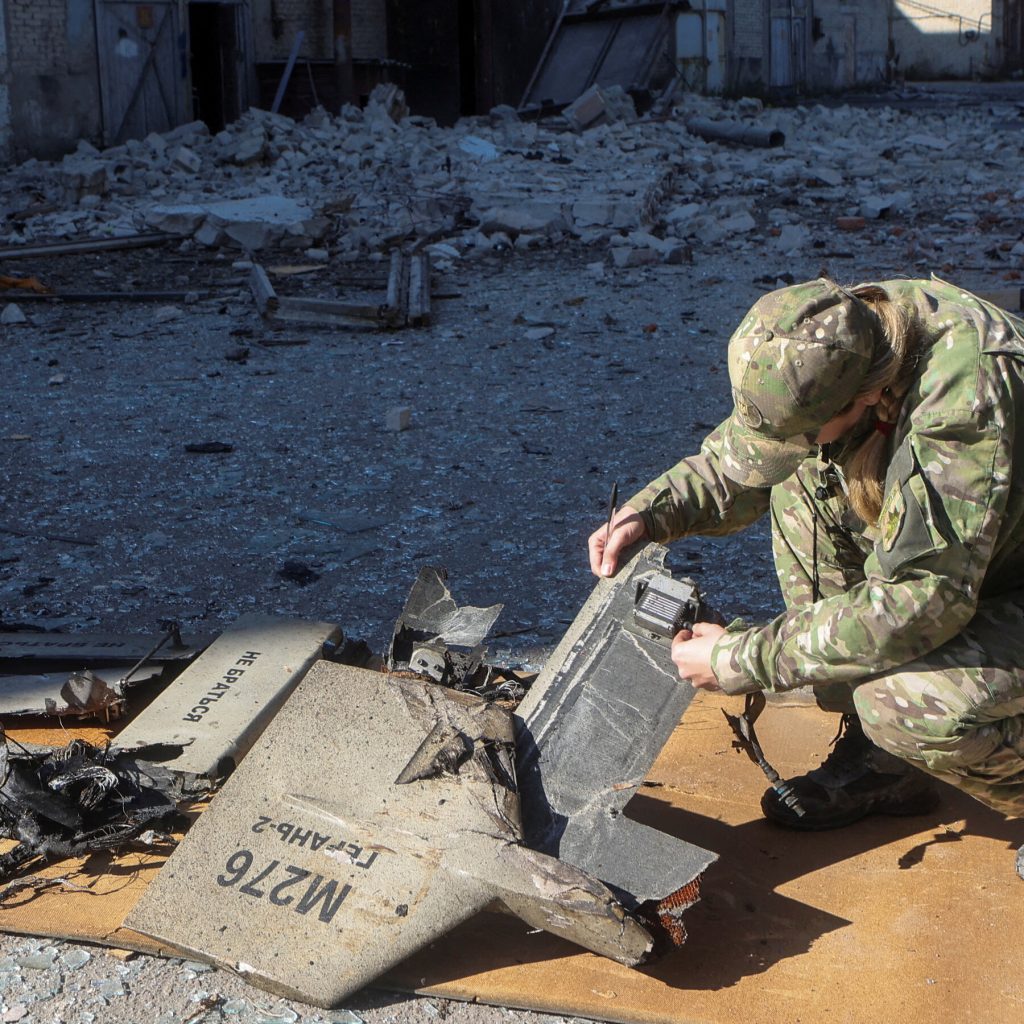U.S. and Ukrainian researchers have indicated that Western nations are making strides in combatting the unauthorized transfer of Western electronic components to a Russian facility suspected of producing Iranian-designed attack drones. However, they emphasize the need for further action.
On June 8, the White House released a U.S. intelligence finding asserting that Russia was obtaining Iranian materials for constructing an attack drone manufacturing plant in its Alabuga special economic zone. Russia claims self-reliance in drone usage against Ukraine, while Iran acknowledges supplying drones to Russia before the February 2022 invasion of Ukraine.
The researchers applaud the U.S. Commerce Department’s December 6 move, placing 11 Russian companies on the list requiring a license for items subject to export controls due to their association with the suspected Alabuga drone facility. Commerce expanded controls in February to include semiconductors and drone components used by Russian and Iranian entities. David Albright, president of the Institute for Science and International Security, commends this action as progress.
Vladyslav Vlasiuk, a Ukrainian sanctions researcher, welcomes the U.S. initiative but urges the Biden administration to go further. Although the administration sanctioned some apparent subsidiaries of JSC Alabuga, the plant’s owners, Albright and Vlasiuk, suggest that the U.S. Treasury and State departments should sanction JSC Alabuga itself and associated companies to deter foreign business dealings, deeming such designations “long overdue.”
While the U.S. Commerce Department refrains from commenting on potential actions against JSC Alabuga, it emphasizes its commitment to responding to Russia’s actions against Ukraine. The researchers also point to the interest of European governments in leveraging their institute’s research to disrupt the Alabuga plant’s access to electronic components from companies in their territories, based on leaked documents describing Alabuga’s supply chain, production capabilities, and plans for manufacturing Russian-branded copies of Iran’s Shahed 136 attack drone.


While over 50% of the components listed in the assembly plans for Alabuga’s Shahed 136 drones are sourced from U.S. companies, according to Albright’s examination of the documentation, the remaining components are supplied by four European companies, as indicated by his institute. These European contributors include TE Connectivity and u-blox in Switzerland, NXP Semiconductors in the Netherlands, and STMicroelectronics, which is headquartered in Switzerland with manufacturing facilities in the Netherlands.
Albright noted, “Switzerland and the Netherlands are evidently keenly interested in the information we have to offer.” Vlasuk acknowledged the European nations’ collaborative efforts in addressing the Ukraine issue. He stated, “We maintain constant communication with the Dutch government on sanctions, and their proactive assistance has been invaluable. While engaging with the Swiss has posed some challenges, we are in contact with them, and they largely align with the EU sanctions, which is positive.”
Responding to VOA inquiries regarding Alabuga and Albright’s research, the Dutch Foreign Affairs Ministry emphasized the “priority” of preventing the circumvention of sanctions aimed at impeding Russia’s ongoing conflict with Ukraine. The ministry stated that it undertakes various actions with international partners, visible and invisible, but refrained from commenting on interactions with specific companies or organizations.
Also Read: Grim Reality: Allegations of Russian Troop Extermination
In contrast, the Swiss government did not provide a comment following VOA’s email to its Washington embassy last month.
Both Albright and Vlasiuk urged Western electronics manufacturers to take more decisive action in preventing their components from being utilized in Alabuga’s drones. Albright emphasized the need for manufacturers to collaborate with distributors on policies promoting due diligence, asserting that critical items should not be sold unless the end user is thoroughly known.
Vlasiuk expressed Ukraine’s dissatisfaction with discovering Western parts in Russian-launched attack drones and criticized manufacturers for their explanations. He highlighted the need for stricter compliance and enhanced know-your-customer procedures, noting that manufacturers often claim not to officially supply anything to Russia.
In a statement sent to VOA on Saturday, a spokesperson for Swiss company u-blox condemned the use of its products in weapons systems of embargoed countries as a “clear breach” of sales conditions. The spokesperson asserted that any violation would be thoroughly investigated, and legal action would be taken if necessary.
When questioned about Alabuga, u-blox stated that it maintains regular contact with government officials and various NGO representatives. The company offered several possible explanations for the presence of its parts in Russian drones, including pre-sanction purchases, excess inventory sold to brokers, smuggling, or removal from other products.
Dutch company NXP Semiconductors, in a statement on Friday, expressed its commitment to complying with the law and preventing the improper diversion of its products to embargoed countries. The company reported ongoing communication with regulators worldwide, participating in industry-wide efforts to prevent illegal chip diversion.

